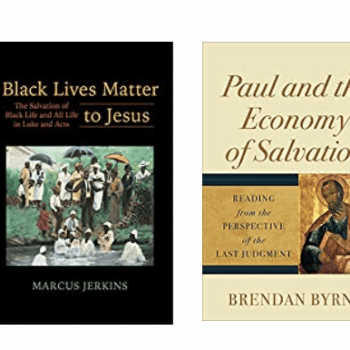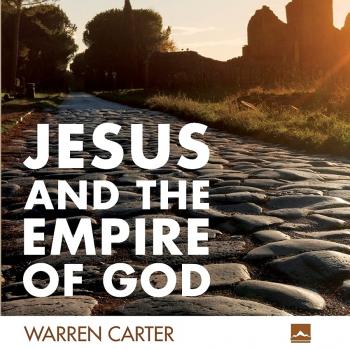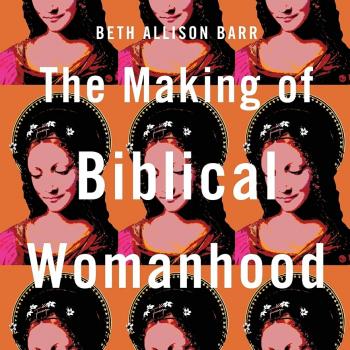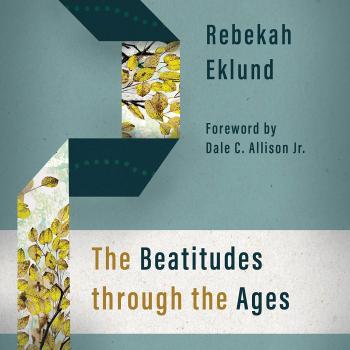A Brand New Cambridge Companion to Paul
In seminary, I cherished my copy of The Cambridge Companion to St. Paul (ed. James D.G. Dunn, 2002). It offered concise overviews of the state of scholarship on various elements of the interpretation of Paul written by leading Pauline experts. Now again, a second version of the book (new topics, new contributors) covers advances, developments, and new conversations in Pauline scholarship over the past 15 years or so.
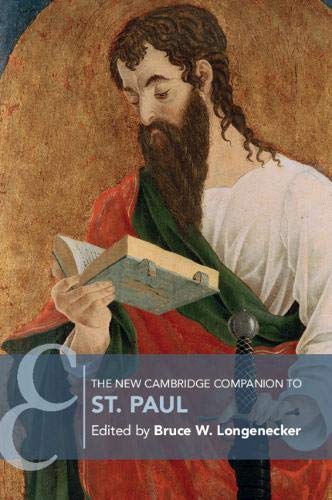
TOC:
“What Do We Find in Paul’s Letters?” (Bruce Longenecker)
“Who Was Paul?” (Paula Fredriksen)
“What Kind of World Did Paul’s Communities Live In?” (Richard Ascough)
“The Thessalonian and Corinthian Letters” (Margaret MacDonald)
“Galatians and Romans” (Peter Oakes)
“Philippians and Philemon” (Douglas Campbell)
“Colossians and Ephesians” (Sylvia Keesmaat)
“The Pastoral Epistles” (James Aaegeson)
“What Did Paul Think is Wrong in God’s World?” (Longenecker)
“What Did Paul Think God Is Doing about What’s Wrong?” (Michael Gorman)
“What Did Paul Think God Is Doing in Christian Communities?” (Susan G. Eastman)
“How Did Paul Read Scripture?” (David Lincicum)
“Did Paul Abandon either Judaism or Monotheism?” (Matthew Novenson)
“Why Were People Attracted to Paul’s Good News?” (David Horrell)
“How Was the Reception of Paul Shaped in the Early Church?” (Margaret Mitchell)
“What Makes Paul Challenging Today?” (John M.G. Barclay)
Let’s start with all the great things about this new edition, and there are several. First, Longenecker has packed it with top scholars, Eastman, Barclay, Fredriksen, Mitchell, Oakes, Novenson. You can trust that what you are reading is reliable information from experts. Second, the book offers a nice balance of “introduction” (for beginners) and “value added”—a bit of advanced material for people like me who know the basics. Third, I really appreciate the investment in Paul’s theology. One could write a “companion” to Paul and make it just about “history,” “text,” and/or “method.” But Longenecker chose to tackle hot topics like sin, gospel, Paul and Judaism, Paul and the church and person, and more. Indeed, I felt that these chapters will offer the most to readers opening up NCCSP having already studied Paul a bit.
My favorite chapters in this book were these:
Ascough’s “scene-setting” work on the ancient world—he managed to pack in a lot of information in a short space. I would love for my NT intro students to read this for a crash-course in the social world of the Roman Empire. Second, I found Fredriksen’s “Who was Paul?” a wonderful, thought-provoking entree into Paul the person. She has such a fresh perspective and asks a lot of challenging and poignant questions. Third, I liked the addition of Horrell’s question about why people were attracted to Paul’s gospel (esp. gentiles). There was nothing like this in the first Cambridge Companion and most introductions to Paul ignore this issue entirely. Horrell admits the blindspot in scholarship. (I am actually working on a book on this topic right now for Brazos!). Taking the lead from Hurtado, Horrell provides these elements that may have attracted gentiles to Paul’s gospel:
- Rescue from immanent divine wrath
- Mystical experience (like and unlike local mystery cults)
- Salvation, rescue, protection
- Missionary zeal and the charisma of Paul (Horrell and Ascough both cite Heidi Wendt’s study as important, At the Temple Gates: The Religion of Freelance Experts in the Roman Empire [OUP, 2016])
- Community Meal and Group-Belonging
- Appeal to slaves, women, and marginalized
By far my favorite essay was the one by John Barclay on reading Paul in our time, especially with our big cultural questions in view about gender, ethnicity, politics, and power. I think every student of Paul MUST read Barclay’s chapter. But until you get the book, here is a random smattering of things I underlined.
[In 1 Corinthians 1:23-25] Paul…embraces the cruel semiotics of crucifixion—the slow, humiliating execution of a naked man, rendered powerless and degraded to the extreme —in order to challenge the automatic valuation of human power and what he calls ‘wisdom,’ the supposed excellence of reason and communication taken to reside in any civilised culture (301)
Paul does not simply invert these values, to give value to the weak over the strong, or the foolish over the wise, as if there were some inherent value in weakness or folly. His purpose is rather to dislodge the deep-rooted assumption that what counts as valuable in the ‘highest’ cultural systems reflects the natural, created, or divine scheme of things…The alternative value system he promotes is not just the old system turned on its head, but a system of worth created by the ‘calling’ of God, which he elsewhere associates with the grace or gift of God. (301)
“Paul’s theology will always be objectionable to those who consider any kind of hierarchical power in principle wrong” (commenting on Paul’s belief in the Lordship of Christ) (304)
“…the danger of projecting our own political preferences onto his letters is as acute for those on the political left as for those on its right” (305)
“Paul’s greatest political challenge may be to the way that we invest our hopes for salvation in politics; what he questions is the ultimate significance we accord to human behaviour that is inevitably flawed through its entanglement in ‘the present evil age'” (306)
“Paul’s views here [stay in the legal status you are, 1 Cor 7:21-23] clash with the modern consensus that freedom is an intrinsic good, and that slavery is wrong not only for the abuses associated with it, but because it deprives slaves of their fundamental human rights. Paul, we should acknowledge, does not hold to this modern conviction, even if there is some overlap in his language regarding the value of freedom” (308)
“As with slavery, Paul relativises gender distinctions not to erase them, but to render them no longer the most significant feature of a person’s identity, and no longer ordered by a hierarchical system of worth” (310)
“If Christian interpretation is to embrace the challenge of Paul, it needs to operate, self-consciously, with some form of theological sachkritik—the critical evaluation of Paul’s letters with regard to their central theological subject matter” (316)
“Paul’s letters are arguably best heard not in the study (or the University), but in the complex challenges of everyday community life, especially the life of the church. Often what is challenging to a critically-trained academic is unproblematic for an ‘ordinary’ believer, and vice-versa.” (317)
“since Paul wrote to shape not just minds, but whole lives in their relation to Christ, perhaps the question of this chapter should be differently framed: what in Paul is not challenging today?” (317)
Now, having voiced all these wonderful things about this new CC book, I did have a few concerns. Firstly, because many chapters contain long questions as their title, it made the TOC hard to read “at a glance.” I like the creativity of posing the issues as questions, but on balance I would have opted for easier chapter titles. Secondly, the new edition is different from the old edition in terms of choosing to cluster Pauline letters rather than giving them separate chapters. For example, Romans and Galatians (Oakes) were combined and the essay studied them together. I think the choice here was to save space for other chapters by combining Paul’s letters, but the net effect is that I just didn’t feel like they worked as self-contained treatments. Thirdly, I was expecting that this new edition would introduce some fresh and new voices, perhaps from the majority world. Very little was done with global voices on Paul. What we see here is a somewhat more classic “Cambridge Companion” that is primarily traditional in approach and method. (I did appreciate the inclusion of early reception studies) I did notice that there are more women scholars in this edition than the original, which is a salutary difference.
Overall, I was very pleased with this new companion to Paul. Several essays I will return to, many I will recommend to my students. Bruce Longenecker is warmly commended for a very successful volume!



